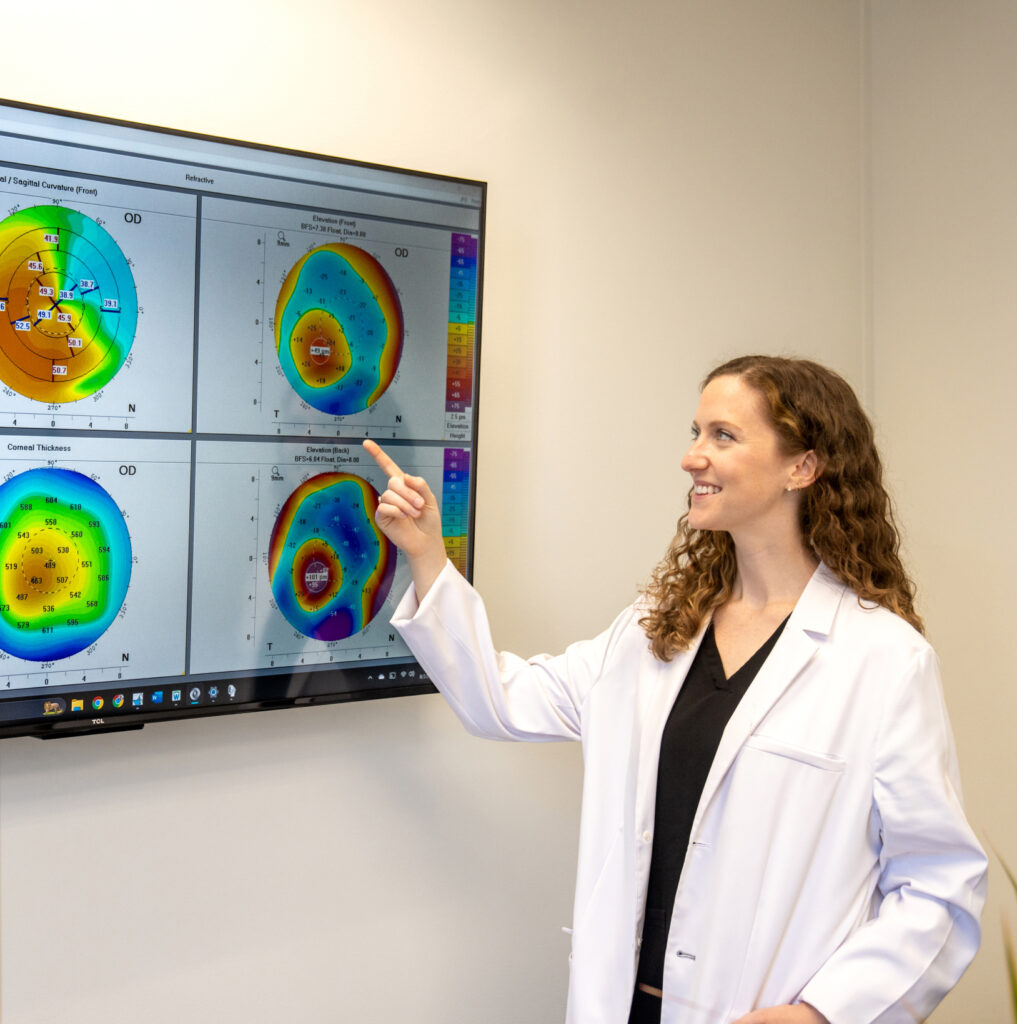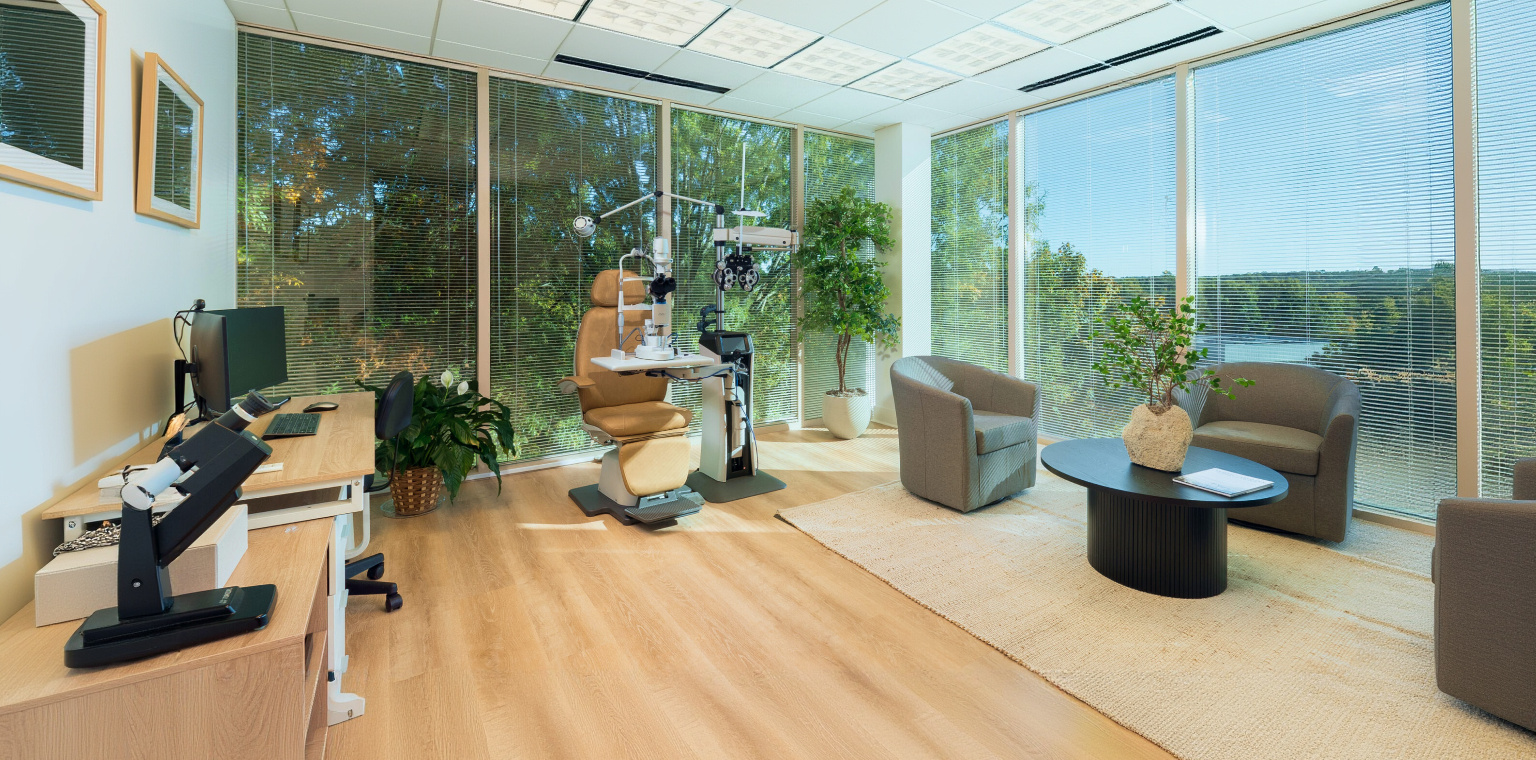
How Scleral Lenses Restore Vision After Corneal Scarring or Transplants
Living with corneal scarring or recovering from a corneal transplant often brings ongoing vision challenges. Distortions, glare, and blurred vision caused by corneal irregularities usually cannot be corrected with glasses or soft lenses. At the Charlotte Contact Lens Institute, we specialize in advanced scleral lenses designed to restore clarity, comfort, and confidence for patients with these complex eye conditions.
- How Scleral Lenses Work
Unlike standard contact lenses, scleral lenses never touch the cornea. Instead, they gently rest on the sclera—the white part of the eye—and create a protective, fluid-filled layer between the lens and the cornea. This reservoir masks scars, graft irregularities, and uneven surfaces, producing a smooth optical zone for consistently clear and stable vision, even in post-transplant eyes.

- Tailoring Scleral Lenses for Transplant Patients

- Who Benefits Most?
Scleral lenses may be right for you if you’re struggling with vision after corneal scarring—whether caused by injury, infection, or surgery—or if you’ve had a corneal transplant but still experience blurred or distorted vision. Patients who find glasses or regular contact lenses uncomfortable often achieve sharper vision and greater comfort with customized scleral lenses.

- Precision-Crafted for Every Eye
At the Charlotte Contact Lens Institute, we go beyond standard scleral lens fitting. Using freeform lens design, we match the exact shape of your eye for a truly personalized fit. For patients with complex optical issues, our Ovitz aberrometer allows us to incorporate wavefront-guided optics, reducing higher-order aberrations and delivering the sharpest vision possible after transplants or scarring.
- Take the Next Step Toward Clearer Vision
If you’ve been told that nothing more can be done for your vision after corneal damage or transplant surgery, scleral lenses may be the solution you’ve been waiting for. With our expertise, advanced imaging, and custom designs, we’ve helped countless patients achieve clearer, more comfortable vision—even when other options have failed.


- Frequently Asked Questions
Can scleral lenses improve vision after a corneal transplant?
Are scleral lenses safe for transplanted corneas?
When fit properly and monitored regularly, they can be both safe and effective.